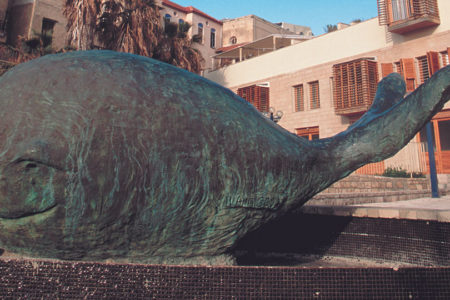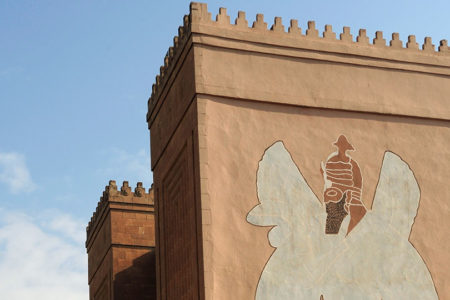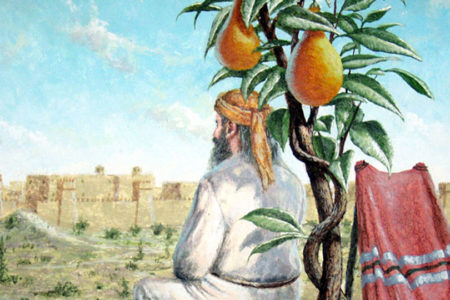His Mercy Endureth Forever Conclusion
To all those who truly repent, God omable wisdom, He distinguishes the weak from the strong, the humble from the proud, and tries the hearts of all men. Somewhere along the way, the Most High God tried Bath-sheba’s heart and decided to bless her. And bless her He
God took Bath-sheba’s infant son, who was conceived in adultery. Yet, in His mercy that endures forever, He gave her another. Scripture says King David “comforted Bath-sheba, his wife, and went in unto her, and lay with her; and she bore a son, and he called his name Solomon; and the LORD loved him” (2 Sam. 12:24).
Here, for the first time, God declared Bath-sheba the legitimate wife of King David, sanctified the marriage, and blessed it. In His infinite mercy and love, He not only gave Bath-sheba another son, He gave her son supremacy over his older brothers by declaring Solomon the heir to the throne. Later David would say, “And of all my sons (for the LORD hath given me many sons) he hath chosen Solomon, my son, to sit upon the throne of the kingdom of the LORD over Israel” (1 Chr. 28:5).
Bath-sheba not only became the queen mother, she became a direct ancestor of Jesus the Messiah through Solomon and, also, through her son Nathan (1 Chr. 3:5; Lk. 3:31). She is one of only four women listed in Christ’s genealogy (Mt. 1:6).
Bath-sheba remained with David the rest of his life (another twenty years or so) and bore him four sons (1 Chr. 3:5). She was one wife among many and witnessed family turmoil that today would be labeled dysfunction of the worst kind. Although God loved David, forgave him, and blessed him, He also kept His promise that the sword would never depart from David’s house because he had murdered Bath-sheba’s husband, Uriah, and taken Uriah’s wife.
Interestingly, there is no condemnation of Bath-sheba anywhere in Scripture. The sin is always ascribed to David alone, perhaps because Bath-sheba, as a relatively powerless woman in an Old Testament economy, was caught in the web of another’s making and submitted to a relationship, believing she had no choice. David, however, spun the web by deliberately and callously breaking three of the Ten Commandments: “Thou shalt not kill. Thou shalt not commit adultery….Thoushaltnotcovet… thy neighbor’s wife” (Ex. 20:13–14, 17).
The Mosaic Law provided no way to rectify this situation through sacrifice. David deserved to die. Even so, God extended mercy but meted out His discipline; and its effects spread throughout the family, including to his wife.
First, David’s eldest son, Amnon, sexually assaulted his own half-sister, Tamar. Tamar was so devastated she spent the rest of her life as a spinster in the home of her brother Absalom (2 Sam. 13:20). David, however, did nothing to punish Amnon, who deserved to have been killed (Lev. 18:9, 29). Consequently, Absalom, who loved his sister so much he named his own daughter after her (2 Sam. 14:27), had the deed done himself (13:29). Then he fled to his and Tamar’s grandfather, the King of Geshur (13:37; 1 Chr. 3:2).
Absalom returned home three years later. But David, who was not harsh enough with Amnon, was too harsh with Absalom and refused to restore their relationship. Consequently, Absalom fomented a rebellion that sent David fleeing for his life.
In all probability, Bath-sheba and her children fled with him because the Bible says, “And the king went forth, and all his household after him. And the king left ten women, who were concubines, to keep the house” (2 Sam. 15:16).
In the end, Absalom was killed. David, tormented by grief and possibly by his miserable failure as a parent, wept aloud, crying: “O my son Absalom, my son, my son Absalom! Would God I had died for thee, O Absalom, my son, my son!” (18:33). All this because of his sin with Bath-sheba.
Bath-sheba appears again in Scripture shortly before David’s death, when he was about 70. True to form, she is ever the submissive woman who does as she is told; and David is still the negligent parent. Adonijah, Absalom’s brother and the oldest of David’s living sons, began boasting that he would become king—even though he knew the kingdom was to go to Solomon, “for it was his from the LORD” (1 Ki. 2:15). David did nothing to stop him. So Adonijah threw a party, ostensibly to celebrate his ascension to the throne. When Nathan the prophet learned what was transpiring, he instructed Bath-sheba to tell David, now old and sick.
Bath-sheba obeyed. In what was probably one of his finest moments with his wife, David declared to Bath-sheba,
As the LORD liveth, who hath redeemed my soul out of all distress, Even as I swore unto thee by the LORD God of Israel, saying, Assuredly Solomon, thy son, shall reign after me, and he shall sit upon my throne in my stead, even so will I certainly do this day (1:29–30).
While Adonijah was off with his guests, Zadok the priest and Nathan the prophet crowned Solomon. Approximately twenty–one years after God took her son who was conceived in sin, He crowned her other son king of Israel.
Bath-sheba appears yet once more. David was dead, and Adonijah apparently still held out hope that he could usurp the throne. Adonijah asked Bath-sheba to persuade Solomon to give him Abishag, a beautiful young woman who had attended David. Bath-sheba was evidently naïve in the ways of the world and did not understand that Adonijah’s request was an attempt to undermine her son. In the culture of that day, Abishag was the king’s property. If he did not want her, no one else got her either. Solomon angrily denied the request and solidified his kingdom by having Adonijah killed (2:24–25).
But Bath-sheba’s entrance into Solomon’s presence provides a beautiful glimpse into the relationship between mother and son. The Scripture says, “And the king rose up to meet her, and bowed himself unto her, and sat down on his throne, and caused a seat to be set for the king’s mother; and she sat on his right hand” (2:19). Although Bath-sheba was now one widow among many in the palace, she was the only widow who was the mother of the king.
It is written in the book of Galatians, “Be not deceived, God is not mocked, for whatever a man soweth, that shall he also reap” (6:7). Unfortunately, the one who sows often is not the only one who reaps. The minute David sowed seeds of sin, Bath-sheba’s life and the lives of David’s children were changed forever. But even as God is holy, righteous, and just, so is He merciful. His mercy endures forever, and He dispenses it graciously to anyone who truly repents.







